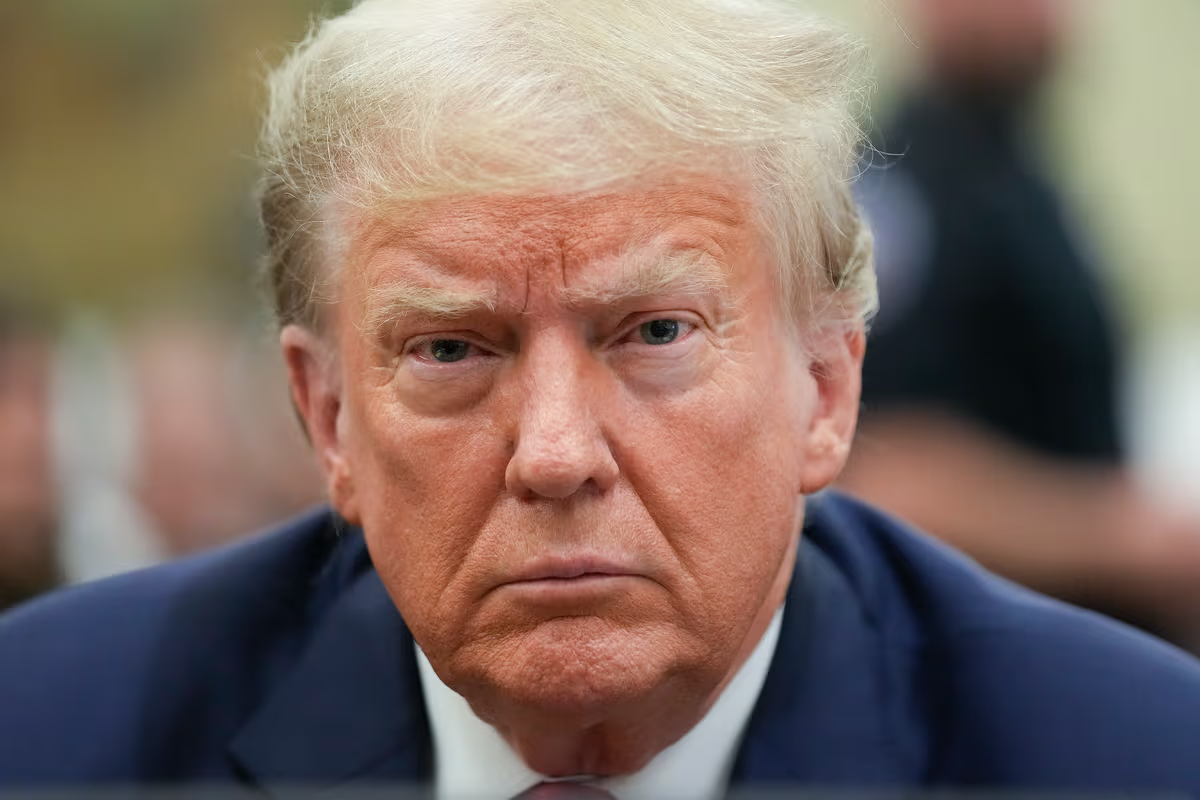Risk of Trump Being Jailed at Rikers Island Has Never Been Higher After Warning From New York Judge
The former president has been judicially gagged for the first time. If he violates the order, jail could await.

Judge Arthur Engoron’s gag order in the fraud case against President Trump brings into focus the possibility that the former president could see the inside of a jail cell even without being convicted of a substantive crime.
The breathtaking possibility is that the 45th president could be escorted behind bars in a civil case — where incarceration is not a penalty for liability — and before his criminal cases, in which he is owed the presumption of innocence, are adjudicated. It underscores how the 2024 Republican frontrunner’s rhetoric is putting him at risk.
Punishment could be a spell at Rikers Island, where a hearing is set for next month on whether the troubled facility will enter federal receivership. Judge Engoron warned that “personal attacks of any member of my court staff are unacceptable, inappropriate, and I will not tolerate them.”
That came after Mr. Trump posted a picture of the judge’s clerk, Allison Greenfield, with Senator Schumer. He claimed the clerk was the lawmaker’s “girlfriend” before deleting the post. Mr. Trump also linked to her private Instagram profile.
The social media focus on Ms. Greenfield came after Mr. Trump, speaking to reporters following the proceedings on Monday, ventured in respect of Ms. Greenfield that the “only one that hates Trump more is his associate up there. The person that works with him. She’s screaming into his ear almost every time we ask a question. A disgrace. It’s a disgrace.”
That edit did not stop the state court judge from issuing “an order forbidding all parties” — not just President Trump — “from posting, emailing or speaking publicly about any members of my staff.” He threatened “serious sanctions” if that command is violated by any of the parties.
On the most important question in the case, Judge Engoron has already found for Attorney General Letitia James, who alleges that Mr. Trump committed “staggering fraud.” This trial has been convened in order to determine Mr. Trump’s financial penalty.
Empire State law ordains that the penalty for criminal contempt, which Mr. Trump would incur should he act crosswise with Judge Engoron’s order, is one “not exceeding one thousand dollars, or by imprisonment, not exceeding thirty days, in the jail of the county where the court is sitting.” The punishment is meted out at the “discretion of the court” after an evidentiary hearing.
A day after Judge Engoron imposed his gag order, Mr. Trump took to Truth Social to denounce the “Witch Hunt Trial taking place in the very badly failing (so sadly!) state of New York.” He calls the attorney general, who is prosecuting the case, “Corrupt.”
No word yet from Judge Engoron, whom Mr. Trump alleged on Wednesday is “run by the Democrats,” on whether this is the kind of commentary that could constitute contempt. Ms. James, though, has not been silent either. After court on Wednesday, she told the press: “The Donald Trump show is over.”
The attorney general called his appearance a “political stunt.” The night she was elected, she said that Mr. Trump “should know that we here in New York — and I, in particular — we are not scared of you,” and pledged to shine “a bright light into every dark corner of his real estate dealings.” At the time, she had yet to be sworn in and had adduced through due process no evidence against Mr. Trump.
New York is not the only jurisdiction where Mr. Trump’s penchant for public statements could put him behind bars. At the District of Columbia, a filing this week from Special Counsel Jack Smith renews his request that Judge Tanya Chutkan impose a gag order in the former president’s January 6 case. Mr. Smith accuses Mr. Trump of engaging in “weeks of widespread public statements threatening the orderly administration of justice.”
Mr. Smith argues that Mr. Trump should not “have free rein to publicly intimidate witnesses and malign the Court, citizens of this District, and prosecutors,” because “in this case, Donald J. Trump is a criminal defendant like any other.” That appears to be a retort to Mr. Trump’s claim that the case against him amounts to political “persecution.” He argues that gag orders are constitutionally disfavored as a “prior restraint” on speech.
The prosecutor maintains that the former president “should not be permitted to continue to try this case in the court of public opinion rather than in the court of law.” He points to critical comments Mr. Trump has levied against his office, Judge Chutkan, and, most recently, General Mark Milley, whom the former president accused of having committed a “treasonous act.”
If Judge Chutkan opts to impose a gag order, she would have recourse to federal law governing contempt. The relevant statute notes that a “court of the United States shall have power to punish by fine or imprisonment, or both, at its discretion, such contempt of its authority” as, among other things, “disobedience or resistance to its lawful writ, process, order, rule, decree, or command.”

